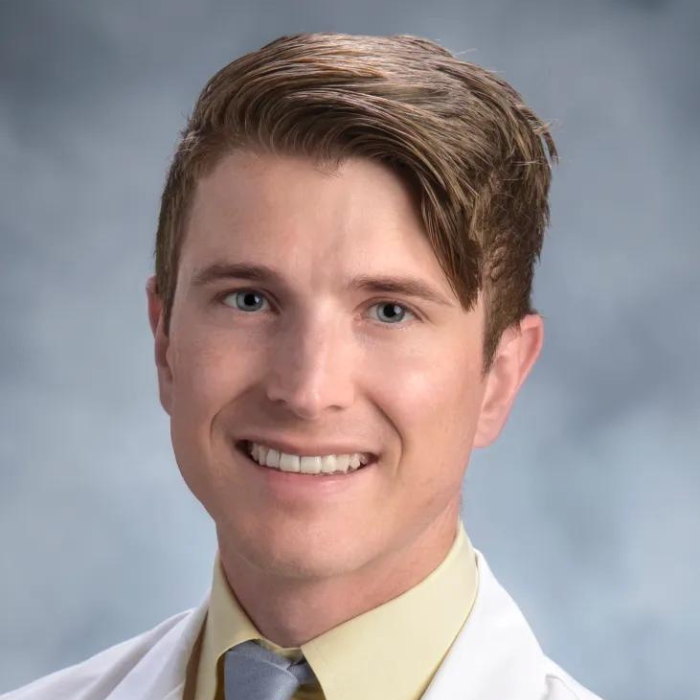I always wanted a way out. Even at the age of 10, something told me the way we were living wasn’t right. My mom, a single parent with three kids, always did her best to provide for us and show us unconditional love. But there is only so much one person can do. We struggled. We moved a lot. There was a constant lack of security. A constant sense of fear.
I had decided early on that I wanted my life to be different. Fortunately, my Uncle Mike came into my life at the perfect time. The mentor that I still look up to this day, he was the role model of success I needed. College educated, humble, and hardworking, I thought if I just did what he did, this could all end.
He pushed me to go to college and educate myself. Nobody in my family had ever gone to college. The idea never crossed my mind, even as I moved into my later teen years. “Education is the great equalizer,” he would tell me. “The only thing you have to do is show up to class and pay your tuition.”
I started at my local university, living in the dorms and embracing the freshman lifestyle. I excelled in my classes, where I was studying to be a psychologist (my friends always told me I gave great advice, and said I was a good listener, so this was the career that made the most sense to me). I could change the world by helping people with their personal problems. It seemed like perfect harmony.
But my intuition told me something wasn’t quite right. I began craving a greater challenge, greater learning. I felt like I was just starting to unlock my potential as a student, both in the classroom and in life. And after growing up in poverty, I wanted to make sure that I did everything in my power to have a better, more stable existence.
After consulting with my own family physician, who was like a father figure to me, I decided I was going to make a run at medical school. It would satisfy everything I wanted: perhaps one of the biggest academic challenges a first-generation college student could undertake, but also a career that commands respect, nobility, and a fairly lucrative salary.
I started at Michigan State with so much excitement. My enthusiasm, however, was soon curbed as I came to understand the demands that come with medical education while competing amongst some of the most brilliant minds I had ever come across. Like most of my colleagues, my “imposter syndrome” started early and showed up often.
But I persisted. I persevered. I had a dream and was motivated to change my life. I pushed myself to the limit each and every day. I approached the extremes of my boundaries mentally, physically, and emotionally. I depleted any and all reserves I had. “Grind culture” permeates every aspect of medical training; I bought in fully.
I reached a critical point after taking my first set of board exams. The weight of this exam could not be understated for us: it essentially dictated what specialty we as hopeful physicians could go into. But it took everything from me. I remember walking out of the testing center and feeling like I wanted to collapse. I had nothing left. The intensity of the past two years of medical education left me feeling a way I have never felt before. A feeling of exasperation. A feeling of resentment. Of anger. Of not caring about anything anymore.
I burned out. I had nothing left in my tank after those first two years and that exam. Yet the journey wasn’t over; if anything, it was just beginning as I entered into my clerkship years. While I continued with my studies, I began to lose sight of why I started this adventure in the first place. My anxiety and depression were hovering over me constantly like a dark stormy cloud. But I made nobody the wiser; the field of medicine demanded we put our own problems aside in order to care for others. There was no time for such selfish endeavors--or at least I thought.
I began coping any way I could. While I did have some healthy mechanisms, like working out and eating nutritiously, I began to use alcohol at an alarming rate to numb myself from the pressures and demands of both life and academics.
I continued to ignore my deteriorating mental health, thinking it would all get better once I graduated medical school and got into residency. I did both of those things in May of 2019, and I shipped off to Naval Hospital Camp Pendleton, where I would begin my journey as a resident in family medicine. And that is where the wheels came off.
It is strange looking back and realizing how naive I was to think all my problems would be solved once I began training. They, in fact, would be amplified. I was nearly 2000 miles from my home in Michigan and my support system. I was in a brand-new environment with new responsibilities as both a naval officer and resident physician. The icing on the cake was the arrival of the COVID-19 pandemic, the shutdown of the world, and then, ultimately, the collapse of my being as I knew it.
My depression, anxiety, and substance use reached a critical point. I struggled at a level I didn't know was possible. I told absolutely nobody about how I was honestly feeling. Whenever friends and family would call, I put on my best act to portray myself as upbeat, positive, and living my best life as a new physician in beautiful southern California. But on the inside I felt a crushing sense of despair and agony that I would do anything to get rid of. “I’m a physician,” I thought to myself. “Why can’t I figure this out?”
And that was the problem. I had figured everything in my life out to that point. Everything. I was a kid from poverty who managed to become one of the most educated people in the world. Yet here I was on the brink of collapse, silently suffering as I tried to survive just one more day.
But eventually, my day of reckoning came. I suffered a mental breakdown that required two of my best friends as well as my mom and my older sister to fly out to California and drag me out of bed. I had lost. I had given up. I had no desire to go on. I needed help.
It took a while, but eventually I was medically discharged from the military after completing my intern year. In the meantime, I got the help I needed and got back to feeling like Bryce again. I moved home to Michigan and took time to reflect on what I wanted. Did I want to go back to medicine? Was I in a good enough place mentally to do that? What was it I now wanted in life?
I eventually came to the decision that I wanted to finish what I started. While working at a rural health center as a practicing physician in a small town in Michigan, I reapplied to residency and found my home again as a transfer in second year (PGY-2) at an amazing program in the Detroit area.
When I applied, I shared my story and struggles, much like I am now. I knew going back to medicine would have to be different. Who I was when I started this journey was much different than who I am now. While I knew my dream was still to finish my training and become a practicing physician, I felt called to do more than just that.
I have discovered a profound passion for advocating for mental health of healthcare workers and especially physicians. I share my story and struggles in order to help normalize the conversation around mental health in our field. I see every day that my colleagues face the same mental health challenges that I did, yet are reluctant to talk about it or get help. While I understand this thought pattern better than just about anyone, it is my goal to change the narrative so that nobody--physician or otherwise--finds themselves in the place of despair I was in.
Admittedly, it is difficult to engage in this level of vulnerability. It is difficult sharing this degree of personal and sensitive information. I know, however, that someone, somewhere will be impacted positively by it. And that alone is enough for me to continue doing so.
So I write. I started a blog, “Badge of Burnout,” with the idea that we need to stop wearing our burnout as some sort of badge of honor. I have started doing public speaking to raise awareness, share my story, and do my part to help others. I want to start a podcast. I want to write a book. I want to connect with others. These ideas are exciting to me. They are what get me out of bed in the morning.
I am now about 7 months from graduating residency. I would not change my past for anything. It was necessary for me to become who I am today, and I am so thankful and grateful for that. As I near the completion of my training, my mission to help people with my medical skills remains unchanged. What has changed, however, is that I now understand things must be different not only for me, but all of us. We must take care of ourselves in order to take care of others. It is imperative to understand that in some way, we are all struggling, and therefore deserve compassion, understanding, and love. My goal is to continue to remind everyone that you are a human first, and a doctor, nurse, physical therapist, or whatever second.
Take care of yourself. Love yourself. Get help if you need it. Speak up. Be brave. Be courageous. You may change not only the course of your own life, but somebody else's as well. I can guarantee you that is a level of satisfaction unlike any you will ever experience.
Dr. Bryce Bowers is a third-year family medicine resident. In his free time, he is passionate about advocating for physician well-being and encouraging all healthcare workers to be proactive about taking care of their mental health.






Leave a commentOrder by
Newest on top Oldest on top